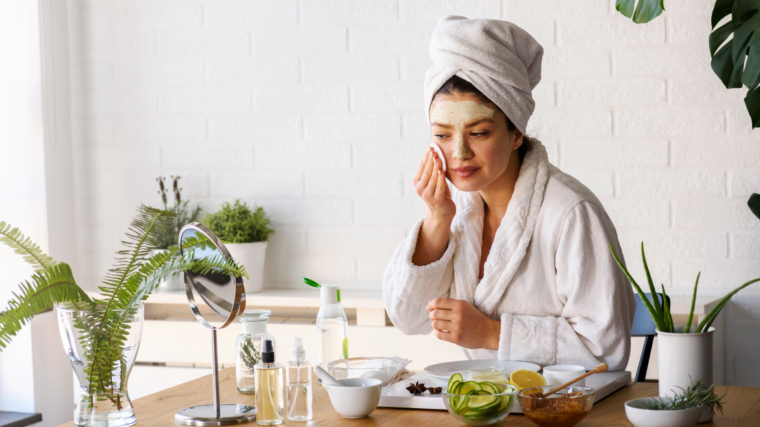




Our skin, being the largest organ in our body, is constantly exposed to the sun and pollutants present in our environment. Apart from looking good, a healthy skin is important for you to feel good because once the damage is done, it is hard to reverse it, and this is why we need a good skin-care routine.
Having a good skin-care routine is beneficial in many ways. For instance, it keeps the skin healthy, also boosting confidence and slowing down the signs of aging. Maintaining a healthy skin-care routine can encourage you to adopt other healthy routines for the ideal healthy lifestyle you wish to embrace.
Three basic steps for good skin care should include:
Cleansing – Washing the pollutants off your face is essential. Washing your face twice a day, morning and night, is recommended, with the right facial cleanser for your specific skin type.
Toning – Toners should be applied after cleansing, by pouring a few drops on your clean palms or a cotton pad and then wiping it on. Toning supplements apply added nutrients on your skin while maintaining your complexion.
Moisturizing – The basic use for this is to hydrate and soften your skin, preventing water loss through the outer layers of the skin.
A fat-soluble vitamin in the vitamin A family, Retinol is used for fighting acne and decreasing dark spots and wrinkles. While boosting blood flow to the skin, increasing the production of collagen, Retinol fights acne by decreasing oil on the skin. From exfoliating dull skin and minimizing break-outs, retinol also helps in accelerating skin renewal.
Retinol can be very useful for people who experience breakouts and acne. From having an exfoliating effect that prevents pores from clogging, retinol also stops blackheads, pimples, and cysts from forming. It unclogs pores, enabling the skin to repair itself. When using retinol for acne, it is recommended that this should be used only every other day initially due to the possibility of skin irritation.
Retinol helps your skin make collagen, which softens wrinkles and fine lines, causing you to look more aged. It fades age spots, improves skin color due to the production of new blood vessels, and bolsters skin’s thickness and elasticity.
Retinol is a powerful ingredient that can cause the face to peel if used too often in the skin-care routine. The skin takes a little time to adjust to retinol, hence causing it to dry and form breakouts.
Retinol is a powerful ingredient that can cause the face to peel if used too often in the skin-care routine. The skin takes a little time to adjust to retinol, hence causing it to dry and form breakouts.
Side effects may also include:
Burning
Redness
Itchiness
Dryness
Increased sensitivity to the sun
It is important to check with the dermatologist first to make sure you don’t mix retinol with other ingredients that may overdo its effects.
Some products may already contain retinoid, hence adding more retinol may just irritate the skin.
After moisturizing, it is recommended to apply broad-spectrum sunscreen as retinol increases the skin sensitivity towards the sun.
Vitamin C, benzoyl peroxide, and AHA/BHA acids should not be mixed with retinol. AHA/BHA acids can cause further irritation on the skin as it already contains retinol, while benzoyl peroxide and retinol just cancel each other out.
Experts recommend pregnant women and breastfeeding mothers to stay away from retinol, as high doses of vitamin A can prove harmful to the child by causing birth defects and negative effects on the child.